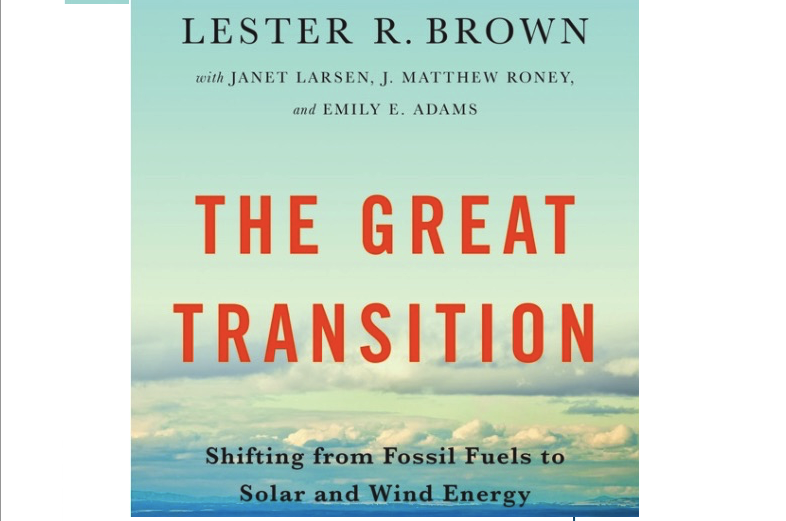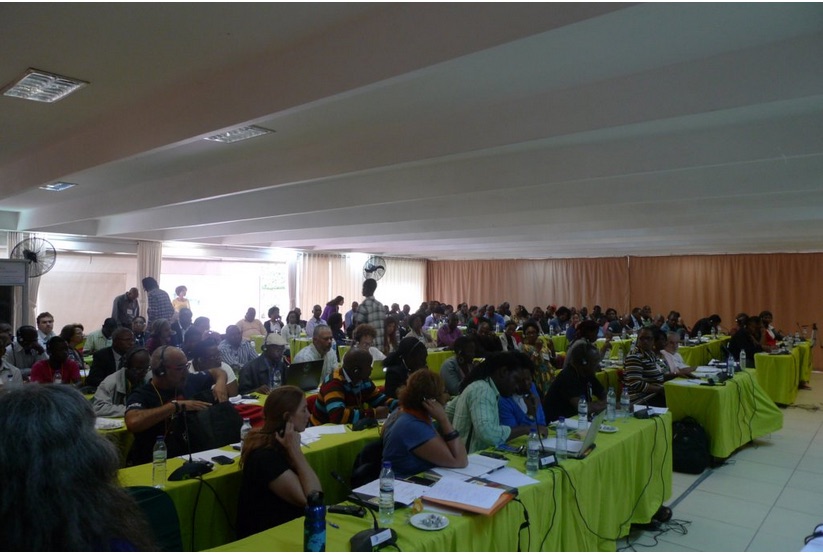
Food Sovereignty is Culture of Peace, an excerpt from my blog of June 1, 2015.
Peasant movements for food sovereignty are an important part of the global movement for a culture of peace, for several reasons.
First, they are the first line of defense against the advances of the culture of war. As
we said in the document that we sent from UNESCO to the UN to define the culture of peace, it
“represents a major change in the concept of economic growth which, in the past, could be
considered as benefitting from military supremacy and structural violence and achieved at the
expense of the vanquished and the weak.” (2) What better way to describe the advances of a few
transnational corporations, supported by so-called “free-trade treaties” who are attempting to
monopolize the seeds that farmers use throughout the world and to impose monoculture
agriculture based on their seeds and their pesticides?
The transnational corporations are supported by the military power of nation states
around the world, not only by the great powers, but also by the governments of the small
countries. An example is Guatemala, where despite pressure from a strong peasant movement to
support a Rural Integral Development law, the law is blocked by a coalition of right-wing parties.
Second, the peasant movements are organized not only locally, and to an increasing extent, on a global scale.
Look at the map of protests on April 17, the International Day of Peasant Struggle against Transnational Companies and Free Trade Agreements. There are actions on every
continent.
The peasant movements are based ultimately on the wisdom and experience of their ancestors as
described in the blog from this February, “Listen to the indigenous people.” (5) This is clearly stated in the declaration of the 6th Congress of the Latin American Coordination of Countryside Organizations: “We emerged from the heart itself of the 500-year process of indigenous, peasant, black and popular resistance.” (6)
The peasant struggle ultimately concerns all of us. As we concluded in the February blog, we
need to “organize local cooperatives and local food production instead of importation and agrobusiness . . . In this way we can protect ourselves against the crash of the American empire and the global economy that it manages.”
Finally, we can say that the peasant movement for sustainable agriculture is not only part of the global movement for a culture of peace, but perhaps its most critical component because it will enable us to survive after the crash and during the period when it may be possible to make a transition from the culture of war to a culture of peace. For this reason it is especially important
– – –
This theme refers to the following CPNN articles:
Agricultural offensive: how Burkina Faso is moving towards self-sufficiency in food production
Report of the 2025 Nyéléni Global Forum on Food Sovereignty and Global Solidarity
Greenpeace: Here are the REAL culprits of the agricultural crisis in France
Indian farmers call off lengthy protest after govt assurances
VIEW Reactions to India’s decision to repeal farm laws
Pope urges inclusive and sustainable food systems
India: Activist Disha Ravi, 22, Arrested Over Toolkit, Faces Conspiracy Charge
Cooperation and Chocolate: The Story of One Colombian Community’s Quest for Peace
India’s Supreme Court puts controversial agricultural laws on hold amid farmers’ protests
India : ‘Delhi Chalo’ explainer: What the farmers’ protest is all about
FAO : Strong support for innovation and digital technologies in Latin America and the Caribbean
Feeding the people in times of Pandemic: The Food Sovereignty Approach in Nicaragua
Navajo Nation: Seeds of Hope during the COVID-19 Pandemic
Agroecology: The Real Deal For Climate Crisis In Africa
North Africa: The Corona pandemic and the Struggle for our Peoples’ Resources and Food Sovereignty
Earth Day Communiqué – 22nd April 2020 Making Peace with the Earth
USA: How Detroit’s farms and gardens are adapting to the COVID-19 crisis
Grow your own: Urban farming flourishes in coronavirus lockdowns
Agroecology and peasant agriculture to preserve biodiversity
In Latin America, agroecology is a deeply political struggle
France: Pierre Rabhi decorated with the Legion of Honor
France: The farmers who bought an old Lidl supermarket
France: Ces paysans qui ont racheté un Lidl supermarché
Guatemalan campesinos embrace ancestral farming practices to prevent migration
Argentina: Final declaration of the 6th Congress of CLOC Via Campesina
Argentina: CLOC-VC congress for supported food sovereignty and integral agrarian reforms
April 17: Farmers mobilise around the world against Free Trade Agreements and for food sovereignty
Interview with Vandana Shiva: Why small farms are key to feeding the world
Seed laws that criminalise farmers: resistance and fightback
France: Interview with a young farmer
Urban Farming Is Booming in the US, but What Does It Really Yield?
The film “Demain”, a manifesto?
Rennes, France : 210 000 habitants vers l’autosuffisance alimentaire !
Rennes, France: 210 000 inhabitants move towards food self-sufficiency!
Changing the system to address injustices: discussing with Mamadou Goita on the World Social Forum
Three Colombian women tell us why preserving seeds is an act of resistance








